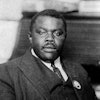I grew up in the East Winston section of Winston-Salem, N.C. Our neighborhood was close-knit, as we knew our neighbors. In fact, we knew who the neighbors were that stayed three or four streets over from where we lived.
As kids, we all knew one another and spent a lot of time in each other’s homes. Back in the day, if my mom ran out of flour for the fried chicken, she would go next door or down the street to get some more. As boys and girls, adults who lived in the neighborhood would discipline us if we got out of line. So we got chastised by our neighbors and received further punishment when we came home. If I told my parents that Mrs. Hairston got on my case, they would always side with her. That was just the way it was.
During the summer, I would sit on the “block” with my buddies swapping stories until the street lights came on. Once the street lights came on, it was time for all kids to vacate the “block” and go home. Our parents didn’t have to call us; it was just an unspoken rule. I pretty much stayed outside whenever I could. The same was true for the other kids in the neighborhood. Besides, there was nothing to do inside except watch television, and that was unappealing. The games that we played as children were inexpensive. We played marbles in the dirt, and we would hide from one another.
While we had fun, education was taken very seriously by all adults. I don’t ever remember a time when an adult didn’t ask me about how I was doing in school. I can remember the times when some of my friends and I were given these education talks by the neighbors. Mind you, many of these education talks were given by men and women without a college education. They just wanted us to have a better life than they did. Many of the adults in East Winston worked for R.J. Reynolds Tobacco Company in labor-intensive jobs. They simply wanted us to have a better opportunity, and that opportunity would come by going to college.
As I reflect now, I am not surprised that education was my career choice. My next-door neighbor, Mrs. Scales, was a high school English teacher at Atkins High School (my high school). My U.S. history teacher, Mr. Earl, lived around the corner from me. Having your homework in his class was a must, and we all understood he had high expectations of us. Mr. Earl gave me my first briefcase when I started my teaching career at Ballou High School in Washington, D.C., as — you guessed it — a history teacher.
The kids in my neighborhood were a part of the village. We had elders there who provided us with guidance, instruction and discipline. We listened to them because they knew more than we knew. They showed us that they cared about us. Men and women in East Winston kept us in love until it was time for us to make our own way. Men in my neighborhood took seriously their roles as men. We as boys looked to them for their wisdom and for their mentorship. Talking back and being brazen were not options. We had to act like “we had some sense” and had HT (home training).
Many years ago now, Sam Cooke sang “A Change is Gonna Come.” He was right! Gosh, at this moment it is a great time to be around. The improvements and the enhancements are beyond description. What young people are able to do these days is without equal. The opportunities are endless, and so are the dreams. If you are young today and have some drive, then your future is bright. There are role models out there in about every field of endeavor. You can see everybody doing about everything. Career choices have expanded so much that even young children are making their minds up sooner. Some of their career choices will amaze you.
However in this drive to the top and the quest for success do we know our neighbor? Do children know who lives around the corner from them? Can we as adults go and borrow a cup of flour from our neighbor down the street? Can other folks discipline our kids these days? You can answer that question.
Do our neighbors talk to our children about their educational pursuits? Sometimes, I think we are moving so fast that we cannot help someone else. Maybe my parents and others like them were moving fast, too; however, I do know that at a certain time the streets were quiet. Why? Because families had dinner together. Sometimes, we had the same food for consecutive days. They were called leftovers. In some circles, this is unheard of today, as our children want “new food” each day.
I think we have lost some very important aspects of the village, and we must get them back. My neighborhood didn’t have a Neighborhood Watch Program, but we trusted one another. We didn’t have double and triple locks on our doors because we knew that our neighbors wouldn’t steal from us. Let’s take some time to slow down. Let us walk around the neighborhood or make an unannounced visit to our child’s school. Let us give our children some great memories of growing up.
If we become a part of the village, then others will join us.



















